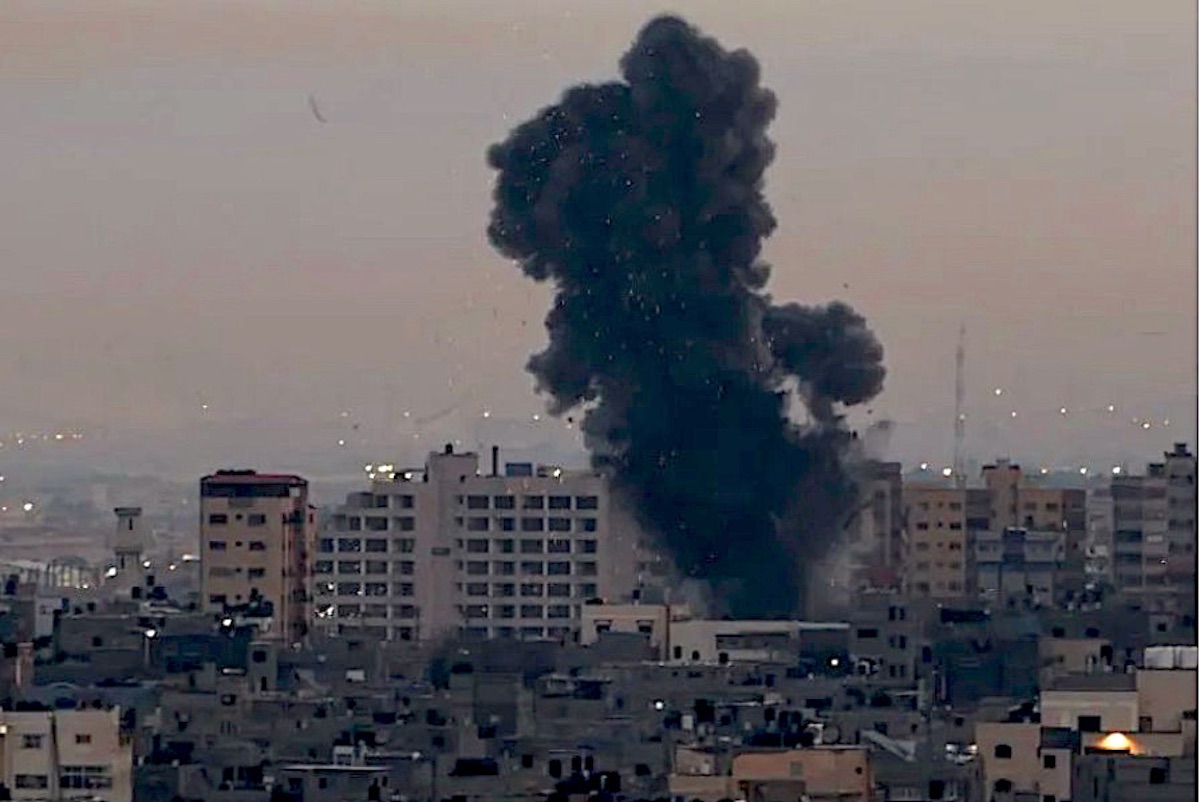
Published 02/23/2023 16:30 | Edited 2/23/2023 4:44 PM
Those who woke up this Thursday (23) in Gaza City, were terrified by the tremors and noise that seemed to be a continuation of the wave of earthquakes that had an epicenter between Turkey and Syria, but were felt in the Gaza Strip. Palestinians traumatized by war were wrong; just as terrifying, the city dawned under Israeli bombardment.
Early in the morning, Israeli warplanes launched a series of airstrikes on Palestinian resistance sites in Gaza, in response to rockets launched from Palestinian territory towards neighboring settlements. Hamas’ response would have been given to the firing of eight Israeli missiles into the Gaza Strip on the morning of February 13, which destroyed a wedding filming studio, in addition to the attack that killed at least 11 Palestinians in the occupied city of Nablus, in the West Bank .
Although they claim to target military or government areas, the blasts always choose quiet times during the early morning or late evening to strike close to residential areas. A constant routine that keeps Palestinians, since childhood, in a permanent crisis of anxiety in the face of explosions, destruction, deaths and injuries.
All of this coming just a day after United Nations Secretary-General António Guterres called for an end to Israeli settlements in the occupied Palestinian territories and condemned “terrorism” amid renewed violence in the West Bank. “Each new settlement is another obstacle on the road to peace,” he told the UN Committee for the Exercise of the Inalienable Rights of the Palestinian People.
According to local sources, Israeli planes bombed a military site belonging to the Qassam Brigades, the military wing of Hamas, northwest of Gaza City, where the bombing resulted in damage to the site and surroundings.
Israeli planes also attacked a military site in the Al-Bureij refugee camp in the central Gaza Strip.
Guterres admitted that the situation “in the occupied Palestinian territory is the most explosive in years” in a context of a “blocked” Israeli-Palestinian “peace process”. “Our immediate priority must be to avoid further escalation, reduce tensions and restore calm,” the secretary-general said in the presence of the Palestinian ambassador to the UN, Riyad Mansour, as missiles rained down on Gaza.
Hamas spokesman Hazem Qassem tells the press that the response to Israeli aggression will continue. “Our people in all arenas will continue their revolution despite the massacres of the Israeli occupation, and our response to aggression will continue.”
The Palestinian territories have witnessed a rise in tension since the beginning of the year, the latest coming from the killing of 11 Palestinians in an Israeli attack on the occupied West Bank city of Nablus on Wednesday.
The deadly incursion sparked anger across Palestine, and a general strike that included businesses, schools and government institutions was announced to mourn the victims. The Palestinian resistance has been cautious, firing warning shots and protesting the killings in the West Bank to avoid an escalation.
Palestinian analysts believe that the situation in the occupied West Bank, more than in Gaza, will worsen, especially with the arrival of the Muslim holy month of Ramadan.
Source: vermelho.org.br

